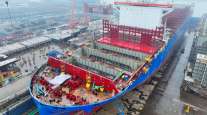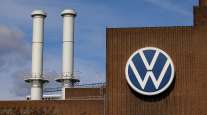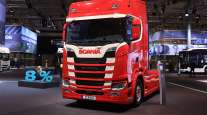Bloomberg News
VW Warns Trade War Causing Slow Car Sales
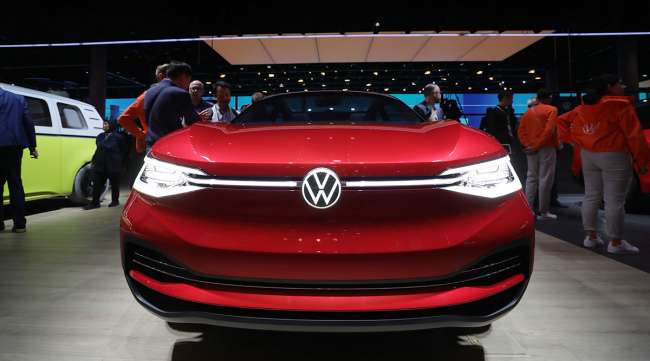
[Stay on top of transportation news: Get TTNews in your inbox.]
Volkswagen AG and other carmakers warned that trade tensions risk dragging the global economy into a recession as the fallout starts to hit consumers.
The gloom of the U.S. and China’s tit-for-tat tariffs cast a shadow over the Frankfurt Auto Show this week, where carmakers were seeking to whip up interest in critical new electric models. The geopolitical volatility adds another layer of uncertainty to an industry in the midst of a radical overhaul as the end of the combustion-engine era looms.
“We come now into a situation where this trade war is really influencing the mood of the customers, and it has the chance to really disrupt the world economy,” Volkswagen CEO Herbert Diess said in an interview with Bloomberg TV. “China is basically a healthy market, but because of the trade war, the car market is basically in a recession. So that’s a new situation. That’s scary for us.”
Concerns about global trade have reached nearly 10 times the peaks seen in previous decades and could shave about 0.75 percentage points off world economic growth this year, according to data compiled by the International Monetary Fund. The auto industry is particularly exposed because of its global network of assembly plants and parts suppliers. Daimler AG, for instance, makes many of its Mercedes-Benz SUVs in Alabama and exports them to China and other markets.
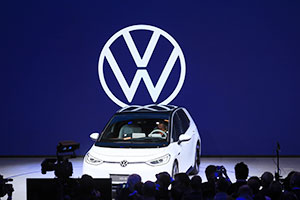
Krisztian Bocsi/Bloomberg News
“What will happen in 2020 will very much depend on what happens with the U.S. and China in the coming weeks,” BMW AG Chief Financial Officer Nicolas Peter said in an interview with Bloomberg TV at the Frankfurt show, Germany’s premier auto exhibition. The German manufacturer assembles most of its SUVs in South Carolina.
After months of talks, the tensions between the U.S. and China remain high. Ted McKinney, the top trade official in President Donald Trump’s Agriculture Department, called Chinese President Xi Jinping a “communist zealot” in the mold of Mao Zedong. After a summer of bombast and tariff escalation, the two sides have agreed to hold face-to-face working-level staff talks in the coming weeks and a ministerial meeting in Washington in early October.
“Everyone is affected by the industry downturn, everyone is suffering,” Continental AG CEO Elmar Degenhart told reporters Sept. 10 in Frankfurt. Europe’s second-largest auto supplier plans to finalize a review of its sprawling global manufacturing network by the end of this year and doesn’t rule out factory closures or layoffs as part sweeping restructuring plans.
Outside the car show, other German industry leaders voiced their concerns about trade risks. Siemens AG CEO Joe Kaeser urged the European Union to assert its voice in the trade conflict between the U.S. and China, saying the specter of a “decoupling” of political and economic systems would break with decades of integration and ultimately risk a global slowdown.
“Europe would be well-advised to avoid this bilateral decoupling, but it can only achieve this when it is heard as a third force in the world, and that’s not the case at the moment,” Kaeser told journalists in Berlin. There’s a sense that the world is reorganizing into new economic spheres, making it harder for export-oriented companies to do business and creating the risk of “having to decide between friend and foe,” said the executive, who recently returned from a trip to China with German Chancellor Angela Merkel.


